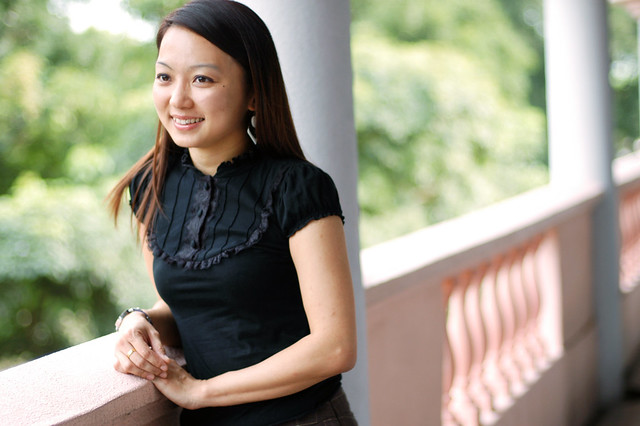
One of the busiest state assemblymen in the country, Hannah Yeoh is truly a multi-tasker who manages to always live by her principles. Over breakfast, she shared with The Rocket what she has learned through serving her urban constituency and what DAP and Pakatan need to improve on without delay.
Do you feel the changing faces of DAP will win over those who feel uncomfortable about the party’s mostly-Chinese membership?
It is good to see new faces that are more diverse but I think more can be done to truly be an inclusive party. As a good start, we now see more DAP functions where the language of communication is Malay, English or both. At the recent Selangor DAP election training workshop, the organisers were pleasantly surprised to find that though the participants were given the choice between English or Mandarin workshops, a sizeable crowd opted for the English one.
So times are definitely changing and we have to adapt to the multicultural reality of Malaysia. We cannot just bank on the “safe seats” to govern; we must reach out. This may appear to contradict my earlier stand on staying true to who you are, but that is why we need a delicate balance. You still have to recognise yourself and this is part of the challenge.
What else needs to be done for DAP to be seen as a mainstream and inclusive party?
We first need to see why people have voted for DAP over the years. It is because the party has been perceived as willing to speak up on issues without fear or favour. That is why people like Karpal Singh and Lim Kit Siang are so respected and we should not lose that. It must be our focus because as long as we continue to speak the truth, then people of all races will embrace us.
Finding candidates who can speak for the truth is a very important focus for the party. It is not enough to merely have a diverse group of people because BN has that diversity; so how did it become irrelevant after some decades? It is because they compromised on certain key issues such as corruption. Moreover, the BN component parties showed a lack of will in speaking up. You can be a very good MCA leader but if people perceive you to be submissive to UMNO and incapable of speaking up, they will no longer want you as their representative. So we must not lose that aspect, which is a big strength of DAP.
Previously, one of your reservations to joining DAP was the language barrier as you don’t speak Mandarin. How did you overcome that hurdle?
I do still get some comments from the public that I cannot be truly effective if I do not speak Mandarin. I do acknowledge the fact that it is a necessity and I have to pick it up, but I also have to ensure that I do not try to become someone who I am not. There is a need to find a balance even while I accept that politics requires us to accommodate the public’s demands and win votes. But we cannot go beyond a certain extent because you will no longer recognise yourself.
That is the struggle that I am facing and I have to reconcile it. People have told me that I would never survive outside of Subang Jaya – “You may be a good ADUN here but since you cannot communicate in Mandarin, you cannot survive anywhere else.” I think elected representatives are there when the people need them but if the public feels they cannot function, then that’s that.
It is a delicate balance – to what extent do you give up your life to chase after votes? But I can still communicate with the Chinese because I do speak Cantonese and I have an assistant who can speak Mandarin. I also come from a mixed marriage so the next thing will be the Indian community saying I must learn Tamil. Where does it end? These days especially, there is also a need to learn more about our Muslim friends and their culture so there is much to learn for all of us and we can never acquire everything.
Some may say that your constituency does not reflect the reality of Malaysia as it is overwhelmingly multicultural in Subang Jaya. But is that a blessing or a curse?
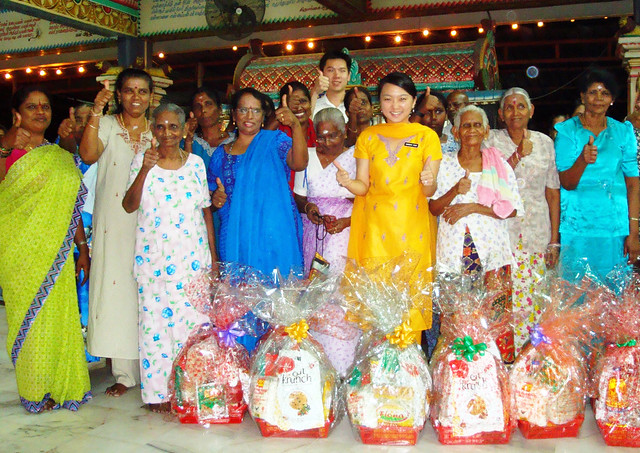 The challenges in Subang Jaya are certainly very different than many other areas. Many elected reps may feel that they don’t have to care about what is being said by the handful of vocal constituents that they have. But with the Internet, my constituents are a very informed bunch and if I don’t deal with their problems, I would lose out quickly because it is a matter of perception.
The challenges in Subang Jaya are certainly very different than many other areas. Many elected reps may feel that they don’t have to care about what is being said by the handful of vocal constituents that they have. But with the Internet, my constituents are a very informed bunch and if I don’t deal with their problems, I would lose out quickly because it is a matter of perception.
So I really have to engage with my constituents and that is why I utilise social media such as Twitter, which I initially did not want to embark on. I felt that having a blog was hard enough to maintain and update regularly and there is also Facebook which I have to check at least once every two days to ensure that nothing offensive has been posted on my page. But I had to get on Twitter because people are active there as well. Then there are the many online forums in Subang Jaya where residents actively discuss various issues and problems. These are things which politicians outside of Subang Jaya may not have to deal with.
We are often dealing with elite groups here; many VIPs, doctors, lawyers, judges and so on live in Subang Jaya. So the challenges are different and people may not understand that. The other aspect is that for some issues, I am more emotionally connected to it than other politicians may be because this is my hometown. It is not just a constituency for me; this is where I grew up and when I contested in 2008, my manifesto contained my dreams as a resident of how Subang Jaya ought to be.
What are lessons for DAP to learn from your success in engaging with the folks in Subang Jaya?
I really spend a lot of time with my residents and I think that’s what the people wanted. Previously, they felt they did not have access to their assemblyman and they have told me, “All these years I’ve never seen my ADUN come to have a town hall meeting with me!” One young girl in SS17 even told me her father was excitedly preparing for the town hall meeting and she did not understand why until he explained to her that in all his years of living here, he had not seen an assemblyman who was willing to come and speak with him.
So I hold these meetings in every area and I think it’s crucial that they do not only see you before an election campaign. We have to spend our term going down to meet the various groups, no matter how small they are. In some ways, you have to “pamper” your residents because they have elected you as their voice. You cannot represent them if you don’t know what they want. Of course, you have to draw the line on what is a reasonable request but spending time with them is the key.
Recently, BN-appointed unelected “facilitators” for state assembly and Parliament have been given taxpayer funds to spend for the public, including in Subang Jaya. Are they effectively and correctly dispensing these funds?
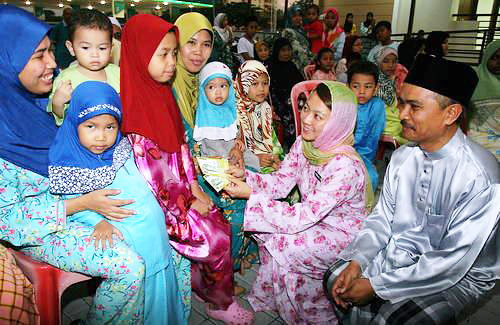 The problem with these facilitators is that taxpayers’ funds are going into the hands of unelected representatives. This is not BN money; it is from the people themselves. Now, some will say that the Selangor government does the same thing when it does not give money to the BN assemblymen but to the state Exco instead. However, the Excos are the executive power of the state; therefore they have been elected.
The problem with these facilitators is that taxpayers’ funds are going into the hands of unelected representatives. This is not BN money; it is from the people themselves. Now, some will say that the Selangor government does the same thing when it does not give money to the BN assemblymen but to the state Exco instead. However, the Excos are the executive power of the state; therefore they have been elected.
So the difference is that if the funds for those BN facilitators in Subang Jaya go to a minister, say Wee Ka Siong (Deputy Education Minister) for example, that is fine because he is a minister holding the taxpayers’ money and he has executive power. But now it just goes into the branch chairman’s hands and we have no idea who this person is. How is he using the money? There is no transparency; when the media asks them how much they are given, no answers are given.
They are given access to the people’s money without being accountable to the public in any way. This is just wrong and when the residents ask how the money is being spent, these facilitators cannot answer them. On our side, the fund dispersion is published online and in my office, we have put up manila cards for each year’s spending so that people can see where the money has gone.
Thus far, they have used the money for Program Mesra Rakyat under the guise of MCA programs; this shows their lack of differentiation between political party funds and taxpayers’ funds. This has always been a problem with BN and I think Pakatan Rakyat must learn to differentiate that because otherwise, we might go down the same path, too.
You have recently allocated RM160,000 from your RM500,000 annual funds to build police bases. But police matters come under the federal government so why is your office stepping in?
In 2009, Home Minister Hishammuddin Hussein said the government would build police bases (“pondok”) at hot spot areas, which included SS15. But early this year, Selangor police chief (CPO) Khalid Bakar said the bases would have to be discontinued due to lack of funding.
SJ Alert, which is a residents’ information portal, found out that the cost for renting a pondok is actually almost as much as building one. So they suggested we build a pondok in the same location if the police would supply their manpower and the CPO agreed to this. So the residents came to me for funding and after they scouted for the best quotations, we purchased the base. Even though this funding should come from the federal government as it involves the police, at the end of the day, the residents just want to see the matter resolved without politicking and security is a real problem in Subang Jaya so I have to address it.
If it is within my power and budget to fix it, then I should do so because after all, my funds are the taxpayers’ money, and it must be used for their benefit. So we have built this pondok at the cost of RM7000 and we calculated that 23 more would be needed, which would total about RM160,000. This would provide a police beat base in every housing area in Subang Jaya but we still need the Selangor police to provide the manpower.
They have told us it will be difficult for them, which is understandable as we would need about 120 officers doing eight-hour shifts each for 24/7 protection. However, this would ultimately resolve the need for gated and guarded neighbourhoods because what people want is the presence of police in their areas.
Increasingly in 2010, religion has made the headlines for the wrong reasons. As a politician with strong religious convictions, what are your thoughts on religion mixing with governance?
My religion teaches me that it is not only a religion, it is a relationship with God. And God tells me that there are only two commandments to obey; love God and love the people as you love yourself. I spoke about this at Pakatan Rakyat’s first annual convention last year, in terms of what interfaith dialogue is all about.
These principles are not just from the Bible, they are also the basis of law. So I feel it is simple enough for everyone to follow and there is no harm for me to apply this to my work life as well. It is always a challenge in a multicultural setting such as in Malaysia, but we must ensure that what we want does not infringe on the rights of others. I can practice what I believe in, but I must not impose it upon others because God does not impose on us. He gives us free will so our politicians need to do the same.
In such a multireligious and multiracial country, is unity a tangible reality or are our differences too divisive to be bridged?
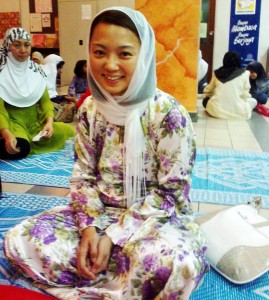 We can achieve this if the leaders not only promote this but also believe it and live it through their actions. Too much publicity is also being given to the likes of Ibrahim Ali (the ultra Malay group Perkasa leader); he doesn’t deserve publicity. The more we talk about him, we are actually giving him space. People on the street may not actually be buying what he says, but when leaders react, we are giving him unnecessary publicity.
We can achieve this if the leaders not only promote this but also believe it and live it through their actions. Too much publicity is also being given to the likes of Ibrahim Ali (the ultra Malay group Perkasa leader); he doesn’t deserve publicity. The more we talk about him, we are actually giving him space. People on the street may not actually be buying what he says, but when leaders react, we are giving him unnecessary publicity.
The more I see of the 1Malaysia campaign being played up by BN, I feel angry because it is mere rhetoric and they do not practice any of it. This is clear from the various incidents, with the latest being the two principles in our national schools (who made racist slurs towards non-Malay students).
This is where it is so important for us to play our role. People are looking for an alternative so we must not only be seen as talking, but as leading by example. We cannot just say that others must change; the people must be able to see the changes among us. That’s why I make sure that every resident here has fair access to the RM500,000 allocation that I receive. I must be fair to them.
UMNO talks about protecting the rights of the Malays and of Muslims. As a Christian and as a Malaysian, I ask myself what I can do to take care of the needs of Muslim voters. Whatever UMNO does, I must do better; for instance, in 2008 I gave RM2000 to every mosque and every surau during Ramadhan which the mosque leaders have told me is much more than they have ever been given. For 2009 and this year, I have given RM2000 for mosques and RM1000 for each surau.
I am not an expert on Muslim matters but I tap on the knowledge of my friends in PAS. I consult with them on how to handle various issues and they advice me on how to proceed. We are also careful to ensure that our work is not party-based; we always make it clear that the funding is from the Selangor state government. Nobody should feel ignored under Pakatan leadership.
After two and a half years of governance, how do you rate the progress of the Pakatan states?
We have to be very critical of ourselves because the people are going to be so we might as well evaluate ourselves from the onset. We have made some improvements in these states but it is not enough. People still need to see things move faster. In that sense, I think Penang has done a great job. Penangites actually tell us that, so the state government deserves to be commended on their efforts.
In Selangor, people want to see changes in the local council and the election of councillors is always being criticised. It is a good step that we have slated 30 percent of councillors as NGO representatives. That has never been done before, but then the question becomes, which NGO councillors should be chosen? Also, who appoints them? There are claims that party people are being chosen for these posts and we need to address that. Moreover, the appointment of councillors is always at the eleventh hour. This is our third year of governance; we should get it right by now.
What are some key areas of focus for the Selangor administration at present?
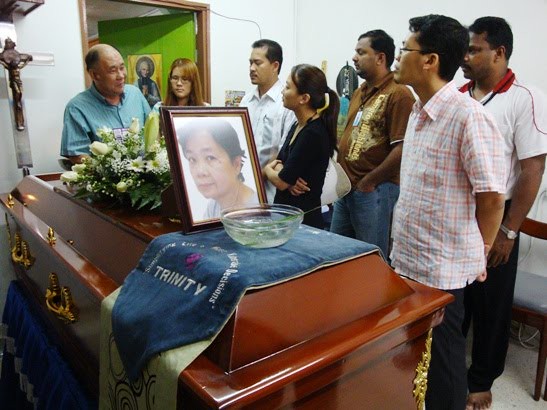 Reform in local councils is crucial. Our councillors are increasingly frustrated because they are facing many blocks in getting their work done. We need to address this urgently. Some basic things we have overlooked include raising the salary of councillors. Good councillors cannot be expected to bring home RM700 to RM1000 a month. If we cannot address this in Selangor, then there is no hope for other states. It is a matter of priority; we must relook our budget to see how their salaries can be raised. If you want quality people, you have to pay them well.
Reform in local councils is crucial. Our councillors are increasingly frustrated because they are facing many blocks in getting their work done. We need to address this urgently. Some basic things we have overlooked include raising the salary of councillors. Good councillors cannot be expected to bring home RM700 to RM1000 a month. If we cannot address this in Selangor, then there is no hope for other states. It is a matter of priority; we must relook our budget to see how their salaries can be raised. If you want quality people, you have to pay them well.
Political willpower for change is a must. Many have also asked why we have not changed the YDPs (Yang Dipertua) for the local councils since this falls under the state’s appointment. The public also wants higher quality candidates for the coming elections. We have to ensure that we factor in what the people are saying as we work towards the next elections.
The land offices are also not moving fast enough. Land issues are under the state, and there are matters for which I have written letters months ago yet things have not progressed. If as an elected representative, I still have to chase the land officers to move faster, what more would a member of the public have to do to get through the red tape? So our delivery systems in terms of land issues and local councils need to be sped up.
But much progress has been made in Selangor especially in terms of the state assembly and legislation. For instance, there is SELCAT (Select Committee on Competency, Accountability & Transparency) and the live telecasts of the proceedings (TV Selangor). Moreover, our assembly sits for a week or more as compared to others that only last a few days. People can see the reforms at that level and our Speaker Teng Chang Kim has done a good job in reforming the state assembly.
The Selangor government is currently debating the Freedom of Information Act (FOI). Is it comprehensive enough and would it be successful?
I am a member of the FOI bill committee and we have started our consultation sessions with the Bar Council and Centre for Independent Journalism (CIJ). They have given their feedback and the first draft has been debated in the assembly. We definitely need to make some amendments and I feel that some of the terms must be made clearer.
For example, local councils must be clearly covered because many documents involve development issues, which neighbours want to have access to. The first draft does not address that and we have consulted with the Bar on whether this should be included. The reason behind this is that local councils are empowered by the Local Governments Act which is a Parliamentary act. So does the state government have power over this? We need to find out and after we consult with other groups as well, the bill should be passed early next year.
Despite being new to politics, the public has responded very well to your leadership. How have you managed to adapt to public service so well?
I am very blessed with a great team as teamwork is crucial. My assistants are excellent and this is a key factor in being able to serve well here. Secondly, we must be very teachable; there are certain things I do not know, and so I seek counsel from others who may be more experienced. One such person is Gobind Singh, whose constituency is close to mine. Other people I consult with regularly include Anthony Loke, Teresa Kok, Tony Pua and Teng Chang Kim.
We must not work independently and there are teams at every level. In Subang Jaya, it is my team of assistants; at the state assembly, it is my fellow assemblymen and Excos. In the counsel of others, you know you have greater wisdom and safety.
One thing that has kept me occupied in my term is to speak to young people and address their questions and visions for the country. Our young are Malaysia’s next generation and we have to give them hope. They are definitely looking for an alternative government so we cannot just be a bit better than BN. They are not comparing us to BN’s standards, but to the likes of Australia and America’s Obama administration. BN cannot be our yardstick because if it is, we will fair very poorly in light of developed nations. Our leadership must see this because the youth are the ones who we must sell our vision to. -The Rocket



